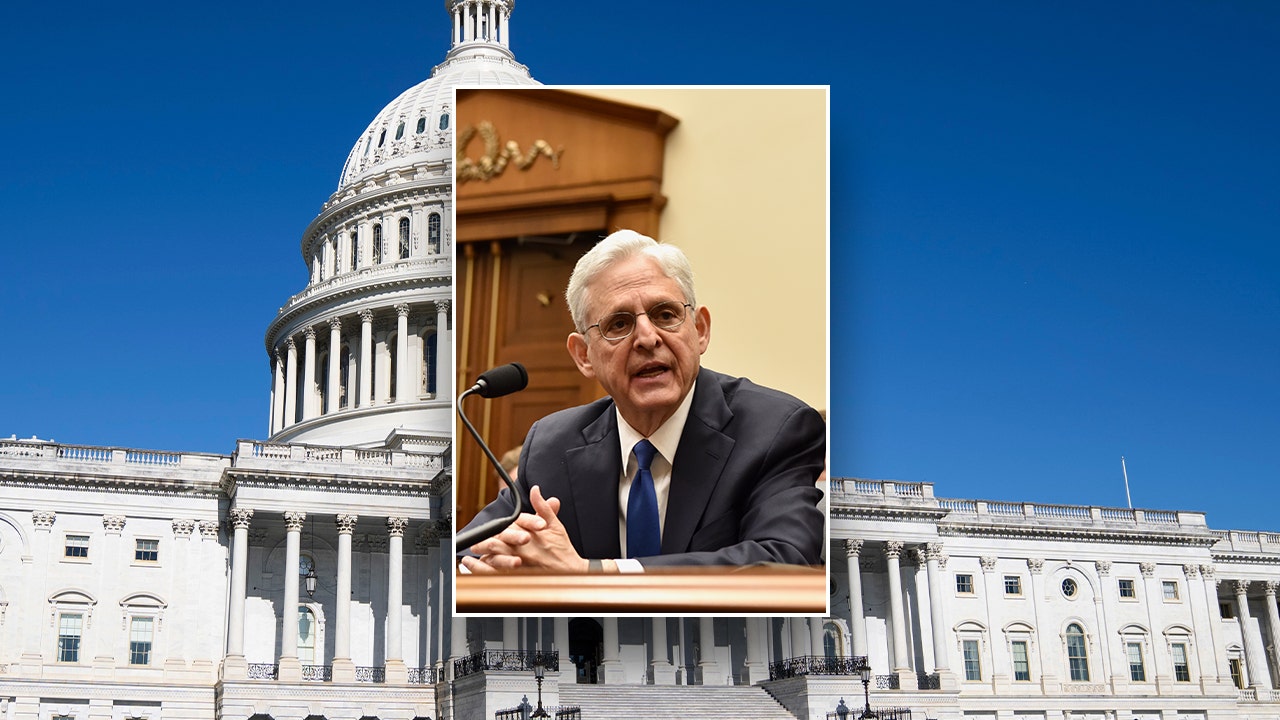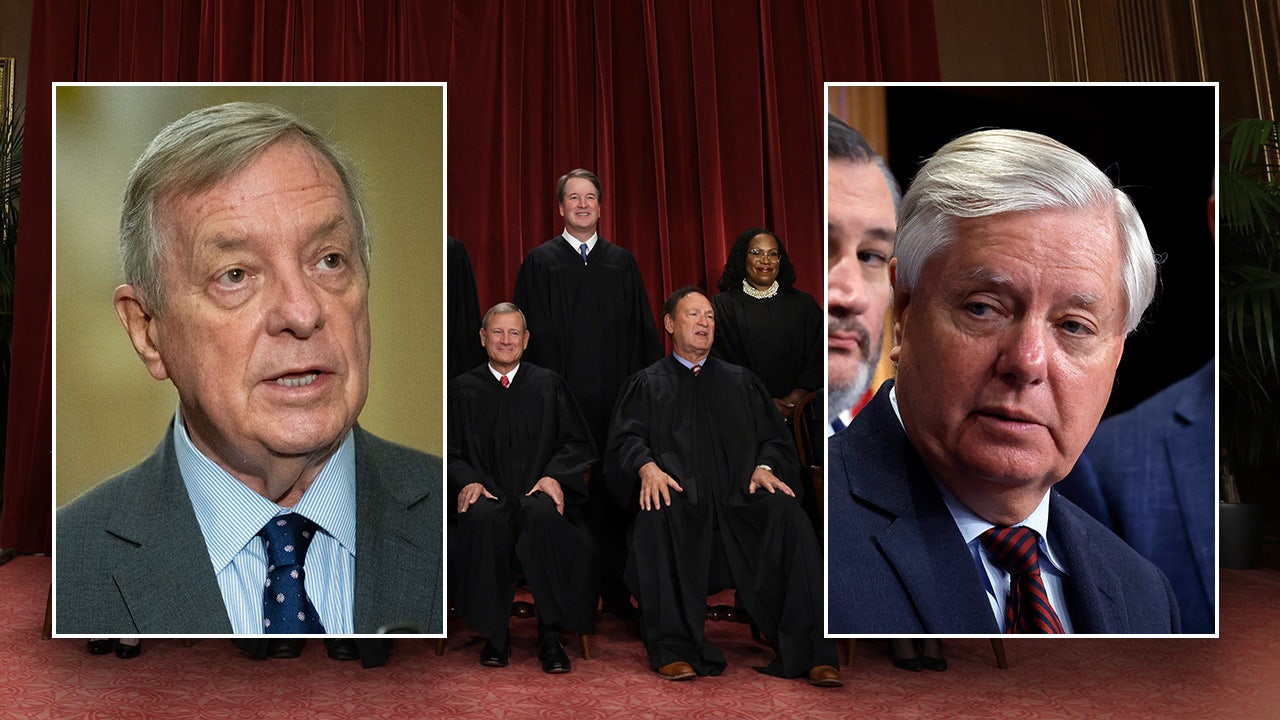Arizona
Weekend wrap-up: Here are the biggest Arizona stories from May 26-28

PHOENIX — Two people were arrested in connection with the shooting of a state trooper, high-tech traffic signs are heading to Arizona and wildlife officers killed three mountain lions.
Here are some of the biggest stories that headlined the Arizona news cycle over the busy Memorial Day Weekend.
2 people arrested in connection with shooting of trooper in Phoenix
Two people were arrested in connection with the shooting of a state trooper in Phoenix on Thursday afternoon, authorities said.
Howard Lamar Johnson, 34, is considered the main suspect, the Phoenix Police Department said Friday morning. He was booked into jail on multiple counts, including aggravated assault with a deadly weapon.
Sonia Hernandez, 27, also was booked on multiple counts for allegedly helping Johnson after the shooting near the Loop 101 Agua Fria Freeway and 19th Avenue.
According to the Arizona Department of Public Safety, officers responded to a call around 12:40 p.m. Thursday to back up a trooper who’d been shot.
The trooper, who was shot several times, was taken to a local hospital with injuries that weren’t life-threatening, according to DPS.
High-tech traffic signs heading to Arizona as part of $1 million federal grant
High-tech traffic signs are heading to Arizona as part of a $1 million advanced technology and infrastructure grant to enhance safety, officials said Thursday.
Mohave County will get funding to install at least 50 stop and curve warning signs equipped with vehicle-to-infrastructure, or V2I, technology in an effort to enhance safety.
The signs will target high-speed rural highway segments, opportunity zones and intersection approaches, the county said in a press release.
The technology will send wireless communication to connected vehicles that provides drivers with real-time advisories.
Arizona wildlife officers kill 3 aggressive mountain lions
Arizona wildlife officers killed three mountain lions this week after the big cats were deemed a threat to public safety.
The mountain lions are believed to have killed several pet dogs in Prescott, the Arizona Game and Fish Department (AZGFD) announced Thursday.
The predators, which rarely attack people, also exhibited aggression and a lack of fear toward humans. Relocating them wasn’t an option because it would have moved the threat to a different community, AZGFD said.
Officers killed an adult female mountain lion on Sunday after a northwest Prescott resident reported that it attacked his dog. The man also said another mountain lion showed aggression toward him.
Phoenix metro follows national trend as number of ‘super commuters’ declines
The number of people traveling more than 90 minutes to get to work in the Phoenix metro has dropped by 36% since 2019.
Those people, dubbed “super commuters,” number 29,811 today in the Valley, which is a drop from an all-time high of 46,529 in 2019, according to an analysis of U.S. Census Bureau American Community Survey data done by rental search website Apartment List. The data counts those who drive and those who take public transportation.
The study found that the decline in the Valley matched a trend seen in cities nationwide, and the reason for the change is the proliferation of remote and hybrid work arrangements that came with the Covid-19 pandemic in 2020.
Arrest made in fatal shooting outside Glendale apartment complex
An arrest has been made in the shooting death of a man who was sitting in his car at a Glendale apartment complex earlier this week, authorities said Friday.
Quincy Lofton, 37, was booked into jail Thursday on second-degree murder and weapons charges, the Glendale Police Department said.
Lofton, who has a felony record, was also wanted on a warrant for extreme DUI, police said.
He is accused of shooting 41-year-old Maurice Marshall near 67th and Glendale avenues around 7:15 p.m. Tuesday.

Arizona
Former Cardinals QB Gets Honest on Retirement Talk

ARIZONA — Former Arizona Cardinals quarterback Colt McCoy hasn’t taken an official snap since the 2022 season.
It might’ve been his last.
That’s not an easy truth to swallow for any football player, let alone a guy such as McCoy – who established himself as a Texas Longhorns legend before playing over ten years in the NFL.
McCoy suffered a neck injury and dealt with concussion symptoms towards the end of the 2022 season in Arizona. Leading into 2023’s training camp, he dealt with elbow issues that ultimately proved to be harsh enough for the Cardinals to cut him ahead of the regular season.
McCoy didn’t sign anywhere following his release from the desert and has been fairly hush on future plans – until recently.
Speaking with local reporters at his annual football camp in Austin, TX, McCoy got honest on his future with the sport.
“I haven’t really talked much about my situation – I never like to give excuses. I’ve been fortunate to play 14 years, I tore my elbow pretty bad and I’m not sure I’m gonna get over that, to be honest,” McCoy said.
“That’s a tough one. But at the same time, injuries are part of the game. I’ve certainly had my fair share and it’s almost kind of like a hard stop. So, we’ll see but [I] had many opportunities to jump back in last year week to week in a lot of places. I physically just wasn’t able to do it.”
“I’m not sure I’m going to get over that … and that’s a tough one.”
An elbow injury might end Colt McCoy’s career in the NFL but don’t worry – football is definitely in his future. #HookEm pic.twitter.com/8TqbrK8oJ4 — Bob Ballou (@BobBallouSports) June 14, 2024
McCoy has done a few guest appearances in the broadcast booth previously, and if he does indeed see the end of the tunnel of his playing career, McCoy says football will be in the mix regardless of what it is.
“I am a footballer for life and I want everybody to play football because I know what it’s done for me. So to have one chapter in and start another one, football will be a part of that somehow. Whether that’s coaching, whether that’s broadcasting, whether that’s talking football, whatever it is, it’s part of who I am,” McCoy said.
“I’m excited about more opportunities to come and what that is in life after this [who knows] but football is amazing.”
Make sure you bookmark All Cardinals for the latest news, analysis, updates and much more!
Arizona
This is not the way to keep University of Arizona spending in check

Opinion: The University of Arizona’s financial crisis points to the need for greater oversight. A bill headed to the governor takes it away.
University of Arizona financial crisis could take 3 years to fix, officials say
Multiple University of Arizona school officials have stepped down amongst the school’s ongoing financial crisis.
The University of Arizona’s recent administrative blunders resulting in a financial crisis suggest a need for more oversight of university governance, but a measure that the Arizona Legislature sent the governor last week would reduce such oversight.
Aside from its strange timing, House Bill 2735 would tie the hands of future university presidents in a way that contradicts good management practice.
The Senate and House passed this Republican bill with party-line votes, even though it undermines traditional Republican goals.
Neither the state Board of Regents nor any of the three universities officially supported the bill (but legislators from both parties claimed it was promoted by individuals connected to the outgoing UA administration).
The governor should veto the legislation, which, given the University of Arizona’s recent history, moves in exactly the wrong direction.
UA’s Faculty Senate provides needed oversight
The central provision of HB 2735 states: “A university president may not delegate the president’s authority to approve academic degrees or organizational units.”
At the University of Arizona, the Faculty Senate is the last step in the approval chain, before a proposed new academic degree or program goes to the Regents for final approval.
The University of Arizona has created scores of new degrees and programs in recent years, sometimes at considerable expense.
The Faculty Senate initiates none of these programs. They come from administration, either central administration or from the 20-odd individual colleges, such as Science, Humanities and Medicine.
This Senate has never, in recent memory, blocked any of the administration’s proposals.
The bill thus eliminates an authority that the Faculty Senate rarely, if ever, exercises. In 2023, for example, the UA administration proposed 28 new degrees and programs. The Senate approved 26 immediately; the remaining two were eventually approved.
The problem is that the bill also ends an important public mechanism for the oversight of a college administration that clearly needs oversight.
People with skin the game should review ideas
The board of a private corporation is accountable to shareholders who have a financial stake in the firm’s performance.
In Arizona, the politically appointed Regents have the challenging task of supervising three large and independently led entities, with no shareholders standing behind them to hold the Regents themselves accountable.
Republicans should recognize that bureaucrats spending billions of other people’s dollars — taxpayer and tuition dollars — need oversight. The UA Faculty Senate, through its public meetings and documents, provides one layer of useful oversight.
Last December, the Faculty Senate held a spirited discussion about, and publicly posted much information about, a proposed “Global MD” degree. After a $14 million startup cost, this program would send students to Australia for medical training, with a special emphasis on Indigenous medical practices.
Board of Regents: Did little to stop UA scandal
Faculty senators asked whether Arizona, and the students themselves, would get a reasonable return on investment. Following this discussion, the Senate approved the program on a split vote, but the Regents have (so far) declined to grant final approval.
In this and similar cases, Faculty Senate oversight is useful.
This bill undercuts UA. Hobbs should veto it
Neither the faculty nor the Legislature wants money wasted on projects that are poorly conceived or weakly managed, on a bloated and self-protecting administrative class, or on priorities that leave behind the Arizona students and families who provide most of the universities’ funding.
Other states recognize the useful role played by faculty governance. In the highly regarded university systems of North Carolina and Texas, for example, faculty governance plays a larger role than at the University of Arizona.
Finally, HB 2735 takes the remarkable step of prohibiting a university president from delegating any of his or her authority on program and degree approvals.
Effective management of any large organization requires sensible delegation of authority. The Legislature should respect a university president’s discretion to implement good and common management practice.
In HB 2735, the Republican majorities have approved a bill that undercuts their own priorities. Gov. Katie Hobbs can do them a favor by vetoing it.
Ethan Orr is a former Republican state lawmaker and teaches at the University of Arizona’s College of Agriculture, Life, and Environmental Sciences. Mark Stegeman is a faculty member of UA’s Eller College of Management and a UA faculty senator. Reach them at eorr@arizona.edu and stegeman@arizona.edu.
Arizona
Arizona forest officials warn of abandoned campfires being found in restricted areas

PHOENIX (AZFamily) — The Arizona Department of Forestry and Fire Management says they’ve come across several abandoned campfires still burning in restricted areas.
Officials said they could have led to a catastrophe if they didn’t find them and put them out.
In total, 10 were in areas already under Stage 1 Fire Restrictions. In addition, all were east of Apache Junction in various areas of state land. Some were just off dirt roads but others were in rural regions.
There were all found with no signs of someone attempting to put them out.
According to forest officials, campfires have caused many wildfires not just in Arizona but across the western part of the country.
Authorities are emphasizing they will be out and about enforcing these restrictions this summer.
“We’ve got prevention patrols going on throughout Arizona. You know, we’re trying to make sure that people are abiding by restrictions, but we’re just asking residents again to be mindful of those restrictions. They won’t last forever. We put them in place to be proactive so we can decrease the amount of starts across the state and for the protection of our firefighters and the public as well,” said Tiffany Davila, an Arizona Department of Forestry and Fire Management spokesperson.
Breaking these restrictions is not just a minor offense. It can lead to hefty fines and potentially jail time.
Last year, a Tucson man was fined a staggering $180,000 for starting a wildfire while target shooting.
State officials say so far that 50,000 acres have burned this year, which is twice the amount than this time last year.
See a spelling or grammatical error in our story? Please click here to report it.
Do you have a photo or video of a breaking news story? Send it to us here with a brief description.
Copyright 2024 KTVK/KPHO. All rights reserved.
-

 Politics1 week ago
Politics1 week agoPresident Biden had front row seat to dog, Commander, repeatedly biting Secret Service agents: report
-

 Politics1 week ago
Politics1 week agoBiden's attorney general is fighting back as the GOP-led House contemplates contempt
-

 News1 week ago
News1 week ago171,000 Traveled for Abortions Last Year. See Where They Went.
-

 Politics1 week ago
Politics1 week agoTrump travels to DC to meet with congressional Republicans, speak with nation's top business executives
-

 Politics1 week ago
Politics1 week agoDurbin looks to force Supreme Court ethics bill vote amid Alito controversy
-

 World1 week ago
World1 week agoThe far right will probably fall short in French legislative elections
-

 World1 week ago
World1 week agoHezbollah rains rockets on Israel after senior commander killed
-

 News1 week ago
News1 week agoPhotographer shares ‘magical’ photos of rare white bison calf at Yellowstone




















